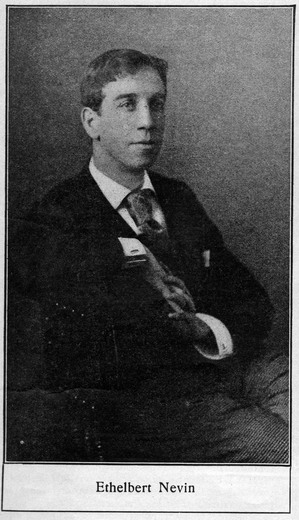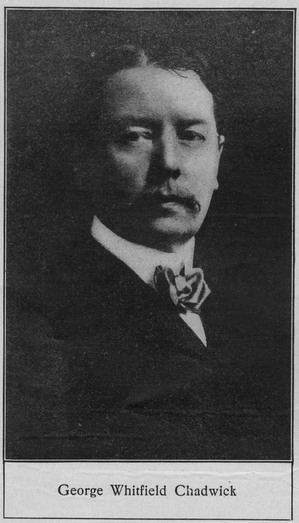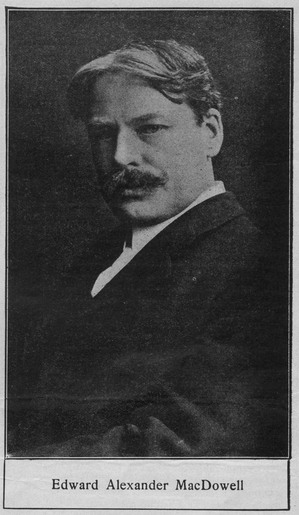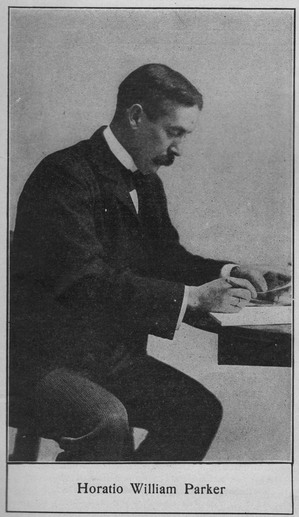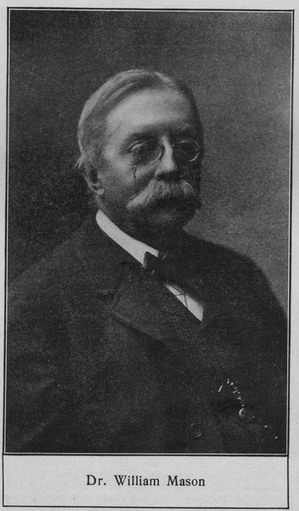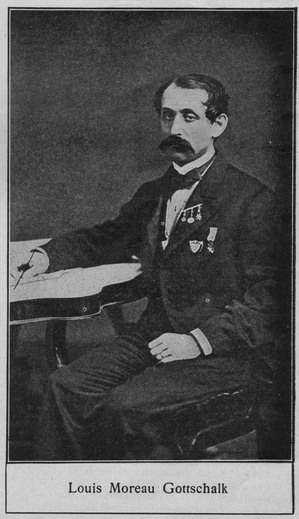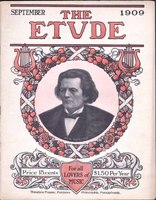Nevin was born at Vineacre, Edgworth, Pa., November 25, 1862, and died at New Haven, Conn., February 17, 1901. Quite early in life he showed signs of great musical talent, and his father saw to it that he received adequate instruction. He studied voice and piano in Europe at Dresden under von Bohme. Later he went to Boston, where he studied piano with B. J. Lang and composition with Stephen A. Emery. After a few years in Pittsburgh, near his birthplace, he went to Berlin in 1884, where he studied under Karl Klindworth. In 1885 he was the only American in an artist’s class composed of four best pupils of Klindworth’s who received instruction from von Buelow. In 1887 Nevin returned to Boston, where he was engaged in teaching and playing in occasional concerts. He made his third trip to Europe in 1892, when he settled in Paris, where he continued to give instruction. At the same time he traveled considerably and was in Berlin, Venice and Florence. His health was not good, and at one time he spent a year in Algiers in order to recuperate. Upon his return to America he again took up his residence at Vineacre, where he remained for a year. In the fall of 1900 he went to New Haven, Conn., and continued his musical work. His compositions are almost all extremely popular, especially the “Rosary.” “Narcissus” is another great favorite with the public. Some have thought his work at times over- sentimental, but it always possesses great charm.
Chadwick was born in Lowell, Mass., November 15, 1854. He first commenced his serious studies in Boston, and was for a time head of the musical department of Olivet College, Michigan, but a year later went to Leipsic. In 1877-78 he studied under Reinecke and Jadassohn, and during 1879 with Rheinberger, in Munich. Soon after his return to America he became conductor of the Boston Handel and Haydn Society. Deciding to remain in Boston, he became organist of the South Congregational Church, and professor of harmony, composition and orchestration at the New England Conservatory of Music, of which he became musical director in 1897. He still fills that post, and is in no small degree responsible for the high standard which that excellent institution has maintained. In 1897 he received the honorary degree of M.A. from Yale University. Dr. Parker, the present Professor of Music at that university, was one of Chadwick’s pupils before going to Germany. Chadwick has won great distinction as a composer, and has written in all forms. Among them are three symphonies, six overtures, eight choral works with orchestra, seven chamber pieces and many songs. For several years he was conductor of the annual music festivals at Springfield and Worcester, Mass. Mr. Chadwick undoubtedly is one of the foremost musicians America has produced, and his compositions show him to be a fine artist.
MacDowell was born at New York City, December, 1861, and died there January 24, 1908. He studied for three years in Paris at the Conservatoire and then went to Germany. In that country, especially at Wiesbaden, he studied under many excellent teachers, but the one who had the greatest influence on the young American was Joachim Raff. The friendship between these two lasted till the death of the German composer, who was instrumental in calling the attention of the musical world to the extraordinary ability of MacDowell. Music-loving Germany appealed very much to MacDowell, and he remained there teaching, performing and composing many years. In 1882 he made the acquaintance of Liszt, who was much impressed with his genius. MacDowell returned to America in 1887 and settled in Boston. His two piano concertos were produced in that city by the Symphony Orchestra, and also in New York by the Thomas Orchestra. In 1896 MacDowell became Professor of Music at Columbia University. In 1904 he retired and became conductor of the Mendelssohn Glee Club in New York, but his increasing mental distress prevented him from remaining there long. His compositions are remarkable for their great beauty, and show a more distinctively American note than has hitherto been obtained. It is hoped that Young America will give the world an opportunity to hear his works as often as possible.
Parker was born at Auburndale, Mass., September 15, 1863. In his fifteenth year he set the fifty poems of Kate Greenaway’s “Under the Window,” in two days. At sixteen he became a church organist. His early activities were spent in Boston, where he studied the piano under John Orth, and theory and composition under Stephen A. Emery and George W. Chadwick. In 1881 he went to Munich, where he won the affectionate interest of Rheinberger, under whom he studied the organ and acquired the contrapuntal skill for which his compositions are remarkable. After three years in Munich Mr. Parker returned to New York, where he was for eight years an organist, and also part of the time taught counterpoint at the National Conservatory of Music, which was then under the direction of Antonin Dvorak. In 1893 he won a conservatory competition for a composition of a cantata. He left New York to take up an appointment as organist at Trinity Church, Boston. At this time he had just finished his oratorio, “Hora Novissima,” which has won him world-wide recognition, and has been especially well received in England, and for which the degree of Mus. Doc. was conferred upon him by Cambridge University. Dr. Parker is now Professor of Music at Yale, and in 1901 resigned his Boston position to occupy a similar one at New York, where his work has been in the highest degree successful.
Dr. Mason was born in Boston, January 24, 1829, and was the son of Lowell Mason, whose name is honored by all American musicians. William Mason was not intended for a musical career, but his own taste for the art was too strong, and after study in Boston he went to Germany. Here he became a pupil of Moscheles (1849), Hauptmann and Richter. Later he studied in Prague with Dreyschock, and spent a portion of the years 1853 and 1854 with Liszt in company with Rubinstein, Von Bülow, Klindworth and Pruckner. He played with great success at many art centers in Europe, and in 1854 returned to America. His piano recitals in this country were brilliantly successful, but he was not fond of travel and soon settled in New York, where he speedily became famous as a teacher. From that time to the time of his death, which occurred in July, 1908, Dr. Mason devoted himself to teaching and developing the musical taste of the country with the greatest enthusiasm. His efforts were crowned with extraordinary success and many fine pianists received their instruction from him. In 1854 he founded a series of chamber concerts in association with Theodore Thomas. Among the pedagogic works associated with his name, “Touch and Technic” is probably the one most familiar to students. This work has been most enthusiastically endorsed by Liszt, Paderewski, Joseffy and others. Most music lovers are familiar with Dr. Mason’s interesting “Memoirs.”
Gottschalk was born in New Orleans, May 28, 1829, and died December, 1869, at Rio de Janeiro. He was the son of an English scientist, his mother being a daughter of Count Antoine de Brusle, Governor of San Domingo. His family was well endowed with this world’s goods and young Gottschalk was early sent to Paris to study, where he became a pupil of Charles Hallé, Camille Stamaty and Maleden. Owing to financial losses he was obliged to adopt music as a profession, and his first tour through Europe, in 1852, won him great recognition. He then returned to America and toured this country under the management of Max Strakosch. His remarkable technic and attractive personality won him great success. He wrote a large amount of music not only for the piano, but also for the orchestra; cantatas and operas on a very grand scale were also composed by him, though they did not achieve recognition. Among his pianoforte compositions, “The Dying Poet” and “The Last Hope” are still admired by many people. Gottschalk went West in 1853, and after appearing in San Francisco he went to South America. While it cannot be questioned that Gottschalk was a musician of the first rank he was not above sacrificing his art on the altar of public applause. His compositions show a great facility in the sentimentally grandiose style. Some possess great melodic charm, but by reason of their lack of deep musical thought they are not admired very much by some people.


